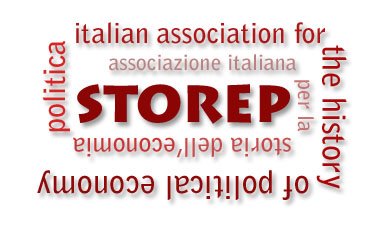MicroCafé - Seminars on the History and Philosophy of Microeconomics
Wednesday, May 11, 2011, 5.00-6.30 PM
The law of indifference, equilibrium, and equilibration in Jevons, Walras, Edgeworth, and Negishi
Franco Donzelli (University of Milan)
VENUE Bocconi, Via Röntgen 1, 5th floor, room 5-E4-SR04
ABSTRACT
In developing their equilibrium theories over the decade 1871-1881, Jevons, Walras, and Edgeworth made use of some version of a Law, called Law of Indifference by Jevonsand Edgeworth and often referred to as the Law of One Price in connection with Walrasian economics. In Jevons’s theory of exchange, the Law of Indifference is a quasi-tautology playing a fundamental role in both the derivation of the equilibrium conditions and the characterization of Jevons’s equilibrium concept. In Walras’s pure-exchange model, the Law of One Price, assumed as a postulate and lacking any proper theoretical underpinnings, is no longer confined to equilibrium analysis, as in Jevons, but is so conceived as to embrace Walras’s equilibration analysis, namely, the celebrated tâtonnement construct, too. Finally, in Edgeworth’s theory of exchange, the Law of Indifference, once again restricted to equilibrium analysis only, is made to emerge as a limiting result, produced by the joint operation of Edgeworth’s replication and recontracting mechanisms and associated with the unbounded increase in the size of the economy. One century after Edgeworth’s achievements, Negishi (1982) resumed Jevons’s and Edgeworth’s interpretation of the Law of Indifference as an equilibrium property; yet, parting company with Edgeworth, he tried to prove that the arbitrage mechanism underlying the Law is at work and fully effective even in very small finite economies. The aim of this paper is twofold: first, to reconstruct the various uses of the Law of Indifference and its variants in the diverse theoretical traditions originated by Jevons, Walras, and Edgeworth; secondly, to critically discuss Negishi’s attempt to revive Jevons’s Law of Indifference as a fully micro-founded and extremely powerful equilibrium property of finite competitive economies where arbitraging activities are allowed for.
INFORMATION
For information, contact francesco.guala@unimi.it or ivan.moscati@unibocconi.it
Argomenti
bandi
(52)
benvenuto
(1)
blog e forum
(24)
convegni
(285)
novità editoriali
(74)
premi
(3)
riviste
(163)
seminari
(59)
Storep attività
(80)
summerschool
(14)
